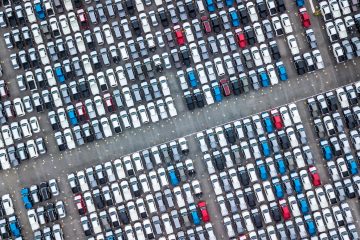The Driver and Vehicle Standards Agency (DVSA) is continuing its clampdown on illegal modifications being offered by workshops, with a further conviction.
Onyx Performance Ltd. was sentenced at Reading Magistrates’ Court, following the company’s failure to show that a vehicle it modified would not be used on a public road. The case was brought after investigations conducted by the DVSA’s Market Surveillance Unit.
This is the second conviction of a business offering illegal modifications in recent months. Onyx Performance follows AET Motorsport, which was sentenced in November for a similar transgression.
No establishment for Onyx Performance
Despite disclosing that the planned modifications may lead to their client’s vehicle becoming unroadworthy, Onyx Performance still provided a ‘pop and bang’ service without establishing whether the vehicle would be used on the road.
The DVSA analysed the vehicle for noise levels at a government testing facility, both before and after the modifications to determine the different outputs of the vehicle.
Onyx Performance Ltd was convicted and ordered to pay a total of £5,800 in fines, victim surcharge and costs for fitting an unsuitable vehicle part to a vehicle which would make it illegal to be used on the road.
Crucially, Reading Magistrates’ Court ruled there is a heavy burden on companies that modify vehicles in this way, to satisfy themselves that cars are not being used on public roads. A customer should be able to show how they plan to move a vehicle once it has been modified.
The judge hearing the case against Onyx Performance explained that if businesses make modifications designed for off-road use, they must make take all reasonable steps to make this clear to their customers and to also satisfy themselves that the vehicle is not to be used on public roads, otherwise they run the risk of prosecution for fitting illegal modifications. Vehicles need to leave their premises on a trailer if changes made render the vehicle illegal for road use.
The service offered by Onyx Performance Ltd contravened regulation 54 of the Road Vehicles (Construction and Use) Regulations 1986, section 76 (1)(a) of the Road Traffic Act 1988 and Schedule 2 to the Road Traffic Offenders Act 1998.
Onus on business for illegal modifications
When making modifications designed for off-road use, businesses must carry out adequate checks to make sure the vehicles they modify will not be used on the road.
The ‘pop and bang’ service involved removing the catalytic converter and exhaust silencer, both legally required on a petrol vehicle. Vehicles modified in this way can only be used where it is legally permissible, such as private property or for permanent export outside the EU, otherwise the work constitutes illegal modifications.
Furthermore, removing the cat from a vehicle causes dangerous emissions to be released into the atmosphere, and removing the silencer means the legal limit for noise levels is likely to be exceeded.
“We are delighted with this outcome which, combined with a recent similar prosecution, highlights that companies must act within the law,” commented Chris Dormand, DVSA’s Head of the Market Surveillance Unit.
“Companies must satisfy themselves they are certain that vehicles which have had modifications designed for off-road use are not used on public roads. Modifications designed for off-road use are illegal on our roads and businesses will be held accountable.
“It is illegal to drive a vehicle on the road after the exhaust system has been altered to increase noise levels or adversely affect emissions. They are anti-social, unhealthy and result in an MOT failure. The DVSA takes this activity seriously and where appropriate, we will prosecute companies who offer similar services.”
The DVSA’s Market Surveillance Unit ensures vehicles, vehicle parts, and vehicle accessories and services sold in the UK meet required specifications and are safe for people to buy. Anyone is able to report a manufacturer or dealer who they believe are offering goods, services or illegal modifications that prevent vehicles from meeting safety and environmental standards.



